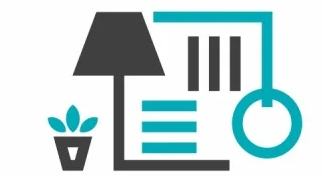With our Property Buyer’s Guide, we want to help you get an overview of France and understand what it’s like to live in France, be informed about property prices and likely trends and understand how to buy safely.
When do I have to pay the deposit and the total price?
The deposit is payable when signing the sales agreement. It amounts to 10% as a general rule, but can be lower. It is payable to the real estate agent if the agency has a financial guarantee insurance, otherwise it is paid to the notary. If you are unable to pay this amount at the time of signing the contract, you will have to agree another date with the seller. The full price must be in the notary’s account at the time the final contract is signed.
Watch out for inheritance tax
An important factor that a foreign buyer should bear in mind is that France has a very strict set of inheritance laws that will apply to their property in France (EU citizens can choose to apply the laws of their country of residence; non-EU citizens do not have this option). French laws specify reserved “heirs” – for example, you cannot disinherit your children – and different rates of inheritance tax apply depending on the relationship between the heir and the deceased.
There are a few ways around these issues, such as setting up a limited liability company that holds the property, or using a “tontine clause” in the contract. A competent notary will be able to help you.
France does not impose restrictions on the sale of goods to foreigners . However, the foreign buyer will face some difficulties, often due to the formidable rigor of the French bureaucracy and the immense amounts of paperwork to be provided. Expect to submit to regular requests to present your passport and birth certificate (bring several copies when you begin the purchase process to save time and paperwork later). Foreigners who need a visa to enter France or a residence permit to stay there may also be required to present them.
Bank account
A French bank account is not a requirement, but it can make your life easier, not only during the buying process, but even later. Regular payments of bills such as electricity and local taxes will be facilitated and will cost less if you hold a French account. Most banks will require an address in France in order to open an account, and some will have specific rules (e.g. requiring customers to domicile their income in the bank account in France, which automatically excludes non-residents ), so you may need to contact several banks before finding the right one. You can also open an account with a money transfer company able to make transfers in euros to French banks.
If you want to transfer large sums of money, your bank may ask you for information to comply with anti-money laundering regulations. If you sold an existing property, you may be asked to show a copy of the deed of sale, or you may be asked for bank statements from your main bank showing your income and savings. As far as financing is concerned, non-residents in France and even non-residents in the EU can obtain a French mortgage, although the criteria may prove to be stricter than for buyers resident in France or the EU. They will also have a reduced choice of banks and a lesser offer of products.
In general, buyers will not need to deal with French taxes other than the council tax and the property tax paid on the property, unless they reside in France full time. However, non-resident buyers who own real estate assets in France worth more than 1.3 million euros will have to pay the IFI (tax on real estate wealth).

